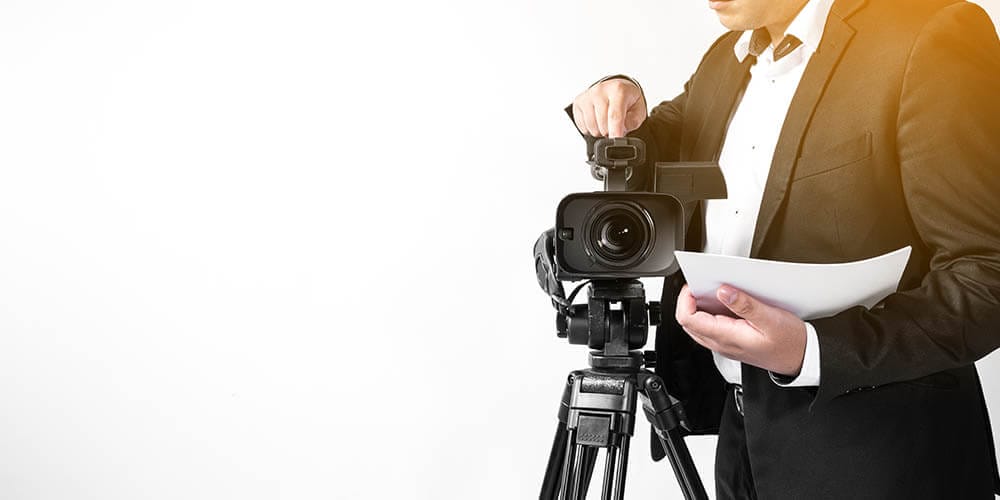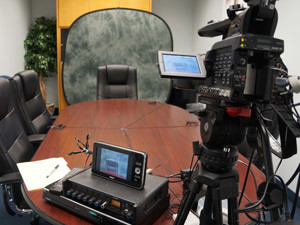Top-Notch Legal Videography for Hearings.
The Duty of Lawful Videography in Depositions and Tests
Lawful videography has actually become an important tool in both depositions and trials, offering a multifaceted approach to recording witness testaments. By catching not just the spoken word however additionally the nuances of non-verbal interaction, this tool improves the integrity of testaments and maintains essential proof for future procedures (legal videography). As attorneys progressively acknowledge its value, it motivates a much deeper assessment of how these aesthetic documents can influence juror assumptions and trial outcomes. What effects might these growths hold for the future of legal practice?

Importance of Lawful Videography
Lawful videography plays a critical role in the documents and discussion of depositions and trials. This specialized field incorporates technological skills with legal expertise to create a trustworthy record of proceedings that can substantially affect case results. The aesthetic element of legal videography improves the understanding of witness testament, allowing jurors and judges to observe not only the spoken words yet additionally the attitude, feelings, and body movement of the witnesses.
In enhancement, lawful videography gives an unbiased account of occasions, decreasing the capacity for misconception that can accompany written transcripts alone. This aesthetic documents works as an essential tool during test presentations, facilitating a clearer and even more influential narrative for both plaintiffs and offenders. Furthermore, the capability to replay video segments throughout court process allows legal groups to stress crucial points, reinforcing their debates properly.
The significance of legal videography expands beyond the courtroom; it additionally plays a crucial function in maintaining evidence for future reference, whether for allures or further lawful activity. Thus, its combination into the lawful procedure is necessary for making sure a fair and accurate depiction of the truths, ultimately adding to the quest of justice.

Refine of Legal Videography
While catching the subtleties of depositions and trials, the procedure of legal videography includes several vital actions that guarantee high-quality, precise recordings. Initially, an expert legal videographer prepares by examining the case materials and recognizing the details demands of the deposition or test. This preparation consists of familiarizing themselves with the participants and the context, which aids in capturing important information.
On the day of the recording, the videographer sets up the needed equipment, which normally consists of high-definition video cameras, microphones, and correct lights. Ensuring optimal angles and audio quality is crucial, as it directly influences the efficiency of the recording. The videographer communicates with attorneys and participants to develop protocols, making certain that everyone recognizes the recording procedure.
Throughout the deposition or trial, the videographer diligently records the proceedings, paying very close attention to both spoken and non-verbal hints. This includes capturing the attitude and reactions of witnesses and attorneys. After the session ends, the videographer may edit the video footage for clarity and conformity with legal standards, generating an end product that precisely reflects the procedures for future recommendation and use in lawful contexts.
Advantages in Depositions
The unification of videography in depositions offers numerous benefits that enhance the total procedure of gathering evidence. One main advantage is the ability to record witness testaments with visual and auditory integrity, offering a more exact depiction of the witness's temperament, tone, and body movement. This multidimensional strategy allows attorneys and juries to analyze integrity better than standard written transcripts alone.
Additionally, videographed depositions function as a powerful device for preserving statement. Ought to a witness ended up being unavailable for test, their taped deposition can be played in court, making sure that their proof remains accessible and pertinent. This element considerably reduces the risk of shedding essential info that could impact instance results.

Finally, videography improves the general expertise of the deposition procedure, instilling self-confidence in customers concerning the thoroughness of their lawful depiction (legal videography). By leveraging modern technology, lawyers can considerably boost the effectiveness of depositions
Effect On Trials
In lots of tests, the assimilation of videography can substantially influence the presentation you could look here of proof and the jury's perception. Legal videography captures witness statements and vital proof in a dynamic layout, permitting jurors to engage with the product on numerous levels. This visual component boosts the storytelling facet of a test, giving context and emotional vibration that conventional text-based evidence may do not have.
Additionally, video clip recordings can serve as effective devices for impeachment throughout interrogation. When discrepancies occur between a witness's prior statements and their court statement, video proof provides an objective reference that can guide jurors' opinions. This immediacy and quality can reinforce the reliability of an event's story while simultaneously undermining opposing disagreements.

Future Trends in Legal Videography
As we look towards the future of lawful videography, a number of arising patterns assure to improve its duty within the court room. One substantial fad is the assimilation of expert system (AI) in video analysis and editing. AI can streamline the process of More about the author identifying key minutes in videotaped depositions, permitting lawyers to swiftly access appropriate material, thus improving efficiency in case prep work.
In addition, the increase of online reality (VR) and boosted fact (AR) innovations is anticipated to more info here change how jurors experience evidence. legal videography. By submersing jurors in a substitute atmosphere, these technologies can provide an extra extensive understanding of complicated scenarios, leading to more enlightened considerations
Furthermore, the boosting demand for remote depositions, accelerated by the COVID-19 pandemic, will likely continue. Legal videographers will need to adjust to new software and systems to guarantee top quality recordings in virtual setups.
Lastly, the expanding emphasis on information safety and security will certainly require more stringent procedures for storing and sharing video proof. As the legal landscape evolves, legal videographers must stay abreast of these trends to preserve their relevance and performance in the judicial procedure.
Verdict
In recap, legal videography serves a crucial feature in the judicial procedure, enhancing the honesty of depositions and trials. As modern technology continues to advance, legal videography is poised to more change its role within the lawful landscape.